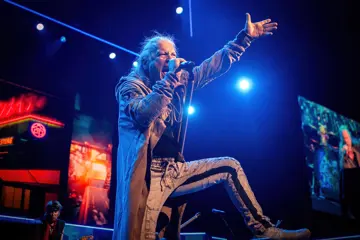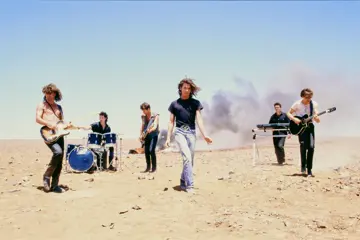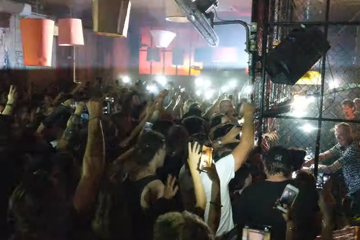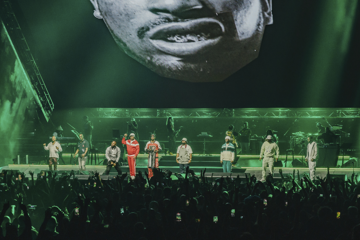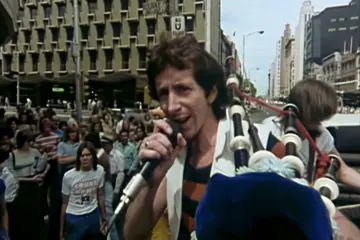 Oliver Hirschbiegel
Oliver Hirschbiegel“When it comes to the depiction of a man like this it is extremely emotive. I knew a lot about Elser, but in a certain sense he will remain a riddle. Looking at his story it is almost unbelievable. He is almost clairvoyant in he sees what is coming. In 1939 no one was talking World War. These people (NSDAP) were terrible, but to see millions and millions of deaths...” Hirschbiegel trails off, before continuing on a different track, “You can only get as close as you can to a character like that, try to shed as many light beams as possible on him.”
Unsuccessful in his attempt, Elser was detained the night of the bombing. The film covers both the interrogation of the man and flashbacks to his previous life, so the audience understand the motives that drove him to this point. “Elser was subjected to enforced interrogation techniques from the Gestapo. I, as a director, have a duty not to avoid that, as many of my colleges have done. Especially me being German, depicting Gestapo interrogation, I feel I need to go deeper there. It gets tricky, authenticity is very unpleasant to shoot that, to force your actors to go that deep into the pain, and at the other end you must not be voyeuristic. You must shoot it in a way that the audience can take it still. It’s a thin line between what you do show and what you make happen in the mind of the audience.”
That question of portraying violence troubles Hirschbiegel. He knows it is a balancing act he must get right. Not to glamorise, but not to shy away from. “It’s awful when anyone is killed. You see people get killed in the thousands in movies, and no one knows what it means. In a film like this it is my duty to make an impression, what dying means, what fear means, what it is like to kill. With any film, especially those dealing with The Third Reich, it is in keeping with authenticity that you drag the audience inside. To wonder what they would do in the same situation. How far would I go? What would I do in the same situation?” The result is an at times harrowing, but also liberating film about a fascinating figure.
On a lighter note, those Hitler reaction videos made from the director’s previous work Downfall? “I never expected a thing like that to happen. I think it is a first in history for something like that to be so many times. It has become a classic, beyond being a classic anyway. It shows that the best weapon to avoid a war is humour. To use Hitler now (laughs) it is hilarious. Most of these are done by brilliant minds. I am very proud of it.”
Originally published in X-Press Magazine
Don't miss a beat with our FREE daily newsletter

